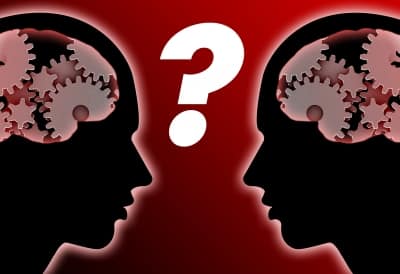
Antidepressants: It’s not only about who is taking them
It is often said that people suffering from depression do not have enough of the brain chemical serotonin. This idea is partially based on the finding that antidepressants increase serotonin in the brain. However, while these brain effects of antidepressants occur even after a single dose of medication, people who have been depressed will tell you that it takes weeks of taking the medication before they feel better. How is it possible that it takes so long for the medication to actually work?
“people who have been depressed will tell you that it takes weeks of taking the medication before they feel better”
One possible answer comes from studies in people who are not and have never been depressed. In these people, antidepressants can be more easily compared with a placebo (an inactive pill). One reason why it can be difficult to make this comparison in people with depression is that they are suffering and thus need the active treatment.
Several studies have shown that when non-depressed people take an antidepressant, they become better at reading others’ facial expressions, for example it becomes easier to see that others look happy. This is true even after a single antidepressant dose. You can imagine that this effect of the medication might have a positive impact on how people get along. Until recently, however, researchers mostly interpreted this finding as an effect of increased serotonin on how people generally view the world around them, without really considering the impact on others in their environment.
In other studies on non-depressed people, their brain serotonin level was increased by giving tryptophan rather than an antidepressant. Tryptophan is an amino acid, one of the building blocks of protein. Tryptophan is an important amino acid, because it is used in your brain to make serotonin. While giving pure tryptophan increases brain serotonin, proteins containing tryptophan do not, as other amino acids in protein prevent extra tryptophan from getting into the brain. If you give non-depressed people pure tryptophan to increase their serotonin levels, like with antidepressants it makes them better at reading facial expressions. So far, no surprises.
“If you give non-depressed people pure tryptophan to increase their serotonin levels, like with antidepressants it makes them better at reading facial expressions. So far, no surprises.”
However, these facial expression studies were all done in laboratories, using computers that showed people faces of strangers smiling, or looking angry or scared. You may wonder if this is relevant for how people see others in their daily lives, where they mostly interact with family, friends, and coworkers. This is indeed an important limitation of these laboratory studies, and so it is reassuring to know that other tryptophan studies have been done directly in people’s daily lives.
Such studies involve asking people to keep a diary for several weeks, while they are taking extra tryptophan with their food (or a placebo). In the diary, people record their conversations with others, right after they happen. People can indicate if they smiled or laughed with their conversation partner (considered a friendly act), if they made a sarcastic comment (considered an unfriendly act), and so on.
Studies using this diary in non-depressed people have shown that tryptophan can make people less unfriendly. It can also make them more friendly, particularly when they were not very friendly to begin with. Depression is often accompanied by unfriendliness and irritability. Since tryptophan, like antidepressants, increases brain serotonin, the diary studies in which tryptophan was given suggest that antidepressants may also make people friendlier.
This has not yet been studied directly, but there is good evidence that antidepressants may have this effect. For example, non-depressed people who take antidepressants become more cooperative when completing laboratory tasks with others, and in people suffering from depression antidepressants have been shown to decrease not only depression but also irritability.
One question remains unanswered, though. Why do antidepressants take weeks to work? The answer may lie in the fact that most of us interact mostly with the same people (family, friends, coworkers) repeatedly over time. If someone you know is usually irritable, but during one conversation he suddenly acts friendlier (for example, because he just started taking an antidepressant), then maybe the people in his environment will not respond to this right away. Only if he is consistently friendlier over time (because he continues to take his antidepressant) then his family, friends, and coworkers might become friendlier towards him as well. You and he will have more and more pleasant conversations together, your relationship will improve, and then he notices it: his mood is better, he no longer feels so depressed!
So what does it all mean? Antidepressants work better in depressed people who are also irritable? Antidepressants only work if people are not completely isolated from others? These questions require further studies, but if the theory is correct, then it is important to also consider the effects of antidepressants on people who are not taking them, but often interact with someone who is.
Relevant Publications and Links
Young, S.N., Moskowitz, D.S., aan het Rot, M. (2014) Possible role of more positive social behavior in the clinical effect of antidepressant drugs. Journal of Psychiatry and Neuroscience 39(1): 60-5.
NOTE: Image is courtesy of Salvatore Vuono / FreeDigitalPhotos.net



